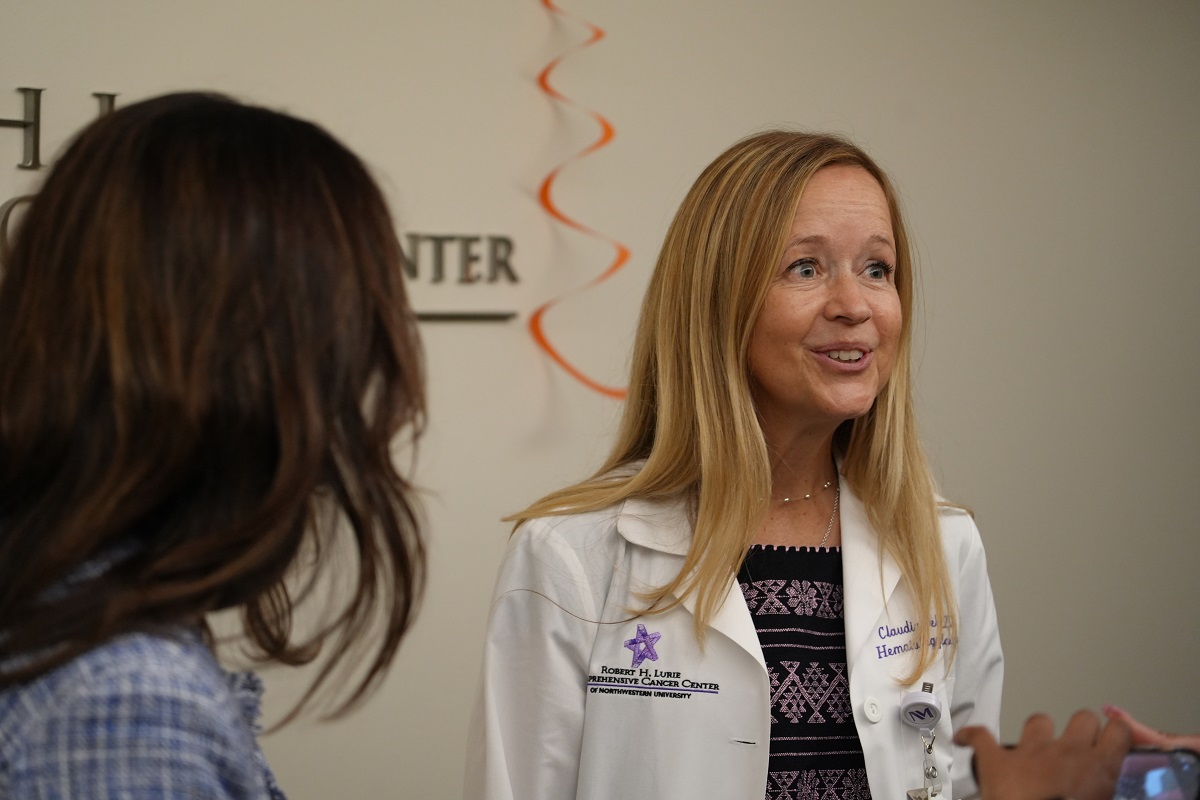Northwestern Medicine Physician Improves Breast Cancer Care for Hispanic Patients
Under leadership of Medical Oncologist Claudia Tellez, MD, teams at Northwestern Medicine are taking steps to remedy gaps in breast cancer care for Hispanic patients.
Dr. Tellez leads the Northwestern Medicine Hispanic Breast Cancer Clinic at Northwestern Memorial Hospital, which offers personalized care from a multidisciplinary team of breast cancer experts, supportive care specialists and administrative staff who all speak Spanish.
“What we see in the Hispanic community is that women are being diagnosed at later stages, even though their diagnosis tends to be at a younger age,” says Dr. Tellez. “And because they’re being diagnosed at a later stage and often with more aggressive types of breast cancer, their prognosis is less favorable.”
Defining Disparities
Despite having lower occurrence rates of breast cancer incidence than non-Hispanic white women,* Hispanic and Latina women are more likely to be diagnosed with late-stage breast cancer, which is harder to treat. This contributes to a 30% higher mortality rate from breast cancer for Hispanic and Latina women.

Dr. Tellez says Hispanic women might struggle to access or receive the highest standard of care because of language barriers, financial limitations and other factors. With this in mind, all patients at the clinic have a core care team that includes a physician, nurse, medical assistant, social worker and research assistant.
“Since I started presenting this idea to leaders at Northwestern Medicine, our teams have been connected to the available resources and people that have helped make this an ideal experience for Hispanic patients,” Dr. Tellez says. “Our teams are dedicated to addressing these disparities and improving access by providing culturally informed care, bilingual support and educational resources tailored to the needs of our patients.”
Prioritizing Equity
Northwestern Medicine works with community partners and other advocates to help improve the health of local communities through education, support groups, charitable giving and more. The health system also recently established the Office of Health Equity to help address disparities and support health equity for all patients.
“At Northwestern Medicine, we look to help all patients reach our facilities and receive high-quality care, no matter their background, experience or socioeconomic level,” Dr. Tellez says. “Our goal is to ensure that every patient who walks through our door has the information, education and resources needed for the best possible outcome in their care journey.”
Do you want to be part of an organization that’s focused on health care that helps communities live better? Explore open roles at Northwestern Medicine.
*Scientists do not always collect information from participants about gender identity. To avoid misrepresenting the results of this research, we use the same terminology as the study authors.
